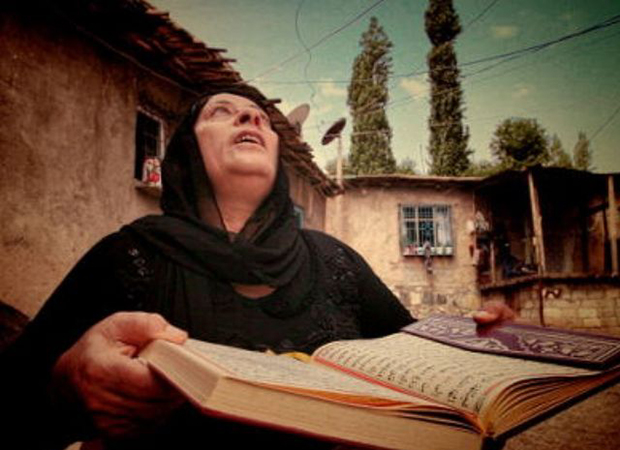
On the night of December 28, 2011, two years ago today, 34 Kurdish civilians were killed in a Turkish aerial bombardment near Roboski village of Uludere district in Sirnak province, southeastern Turkey/north Kurdistan. 17 of the victims were children, and most came from the same family. This massacre, a gruesome one even by the dark standards of Turkey’s dirty war against the Kurds, elicited widespread condemnation both within Turkey and internationally.
The Turkish government called the bombing ‘an administrative accident,’ but questions remain as to whether or not Ankara really tried to avoid civilian deaths. Citing leaked documents from the Turkish army and intelligence agencies, Turkish journalist Mehmet Baransu argues that the decision to bomb was made despite officials’ suspicion that those being targeted were smugglers, rather than PKK (Kurdish Worker’s Party) members. This suspicion was apparently overridden based on an October 14, 2011 intelligence report that PKK members may try to infiltrate Turkey disguised as smugglers. When the dust cleared, it emerged that all of those killed were in fact impoverished villagers engaged in small-scale smuggling between Iraq and Turkey in order to eke out an existence in the deprived Kurdish countryside. They were bombed while returning into Turkey from northern Iraq.
Major Turkish human rights organizations immediately sent a delegation to investigate the bombing. Villagers and the only 3 survivors of the Roboski massacre told the delegation that soldiers in the area were always aware of the smuggling activities in the region, and that soldiers would always let them cross the border without incident. Moreover, soldiers would often warn village leaders before a military operation began in order to ensure that smugglers would not be caught in the crossfire. On the night of the Roboski massacre, however, soldiers apparently held up the smugglers near the border without explanation, and no warning about the impending bombing was given. The human rights delegation thus characterized the Roboski tragedy as a “massacre” and “extrajudicial killing.”
The official bar associations of 12 provinces in eastern and southeastern Turkey also sent a joint investigative delegation to Roboski. Reaching the same broad conclusions as the human rights delegation, the bar associations wrote that “in light of [the information included in the report], there is strong evidence to suggest that this massacre was carried out in a ‘premeditated’ way.”
All of these concerns raise serious questions about the Roboski bombing. Did the Turkish army exhaust all means to ensure that those targeted in the bombing were not civilians? Were all steps taken to avoid civilian casualties? If not, why not? How can Washington reconcile its stated commitment to upholding human rights in the world while awarding Turkey with substantial arms and equipment?
Turkey Peace Assembly organized a commemoration today for victims of the Roboski massacre, the activity titled “Roboski, our bleeding wound” was attended by representatives of Roboski families, BDP (Peace and Democracy Party) Istanbul executives and HDK (Peoples’ Democratic Congress) executive board member Ender İmrek.
Making the opening speech of the commemoration activity at Şişli Cultural Centre, Peace Assembly Spokesman Hakan Tahmaz underlined that it would not be possible for the people of the society to live freely and to be with a clear conscience as long as the Roboski wound continues to bleed and the Kurdish question remains unresolved.
Tahmaz pointed out that the recent murder of three Kurdish civilians in Gever, Hakkari’s Yüksekova district, has caused further pain to the Kurdish people and mothers who -he underlined- have no more lost their children thanks to the ongoing non-conflict environment for the last one year.
Speaking after, Tahir Elçi, President of Diyarbakır Bar Association, and a lawyer for Roboski families, said Roboski is a political matter but primarily concerned the humanity and conscience.
Peace will not come without justice, Elçi emphasized and noted that neither lawyers nor families of the victims knew about the course of the Roboski investigation for the last two years.
Elçi remarked that they don’t expect the military jurisdiction to ensure a fair trial of the military officials responsible for the killing of 34 people and the violation of their right to life.
Elçi said it is important that the perpetrators of the Roboski massacre be punished in order for the achievement of peace between Turkish and Kurdish peoples in the country, and for the prevention of further massacres.
Speaking after, Felek Encü, mother of Erkan Encü, one of the children killed in the massacre, said the followings despite the difficulty she had in speaking; “My son was yet 13. I wouldn’t even allow him to go out alone when it snowed, fearing that he might fall and hurt himself. I used to have him lie in a comfortable bed but he is feeling cold in the ground along with his 33 friends now. The Prime Minister is protecting the murderers of our children and not allowing them to be questioned. We are shedding tears of blood and we do not want other mothers to live the same, nor other children to die.”
Another victim Nadir Alma’s brother Hikmet Alma called attention to the ongoing massacres of Kurds for many years and said “Roboski is the summary of all these massacres”. Alma underlined that they will not give up their struggle for justice despite all the repressive policies of the Turkish state, and called on everyone to attend the commemoration to take place in the village of Roboski on 28 December, the second anniversary of the massacre.
Kurdish Matters / kurdishmatters.com